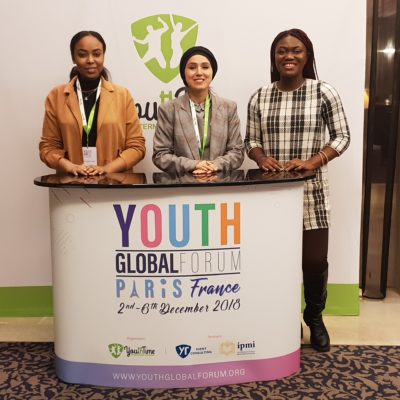Orange reports on the fight against HIV/AIDS and international drug policies. Our aim: End stigma and bring marginalised sectors out of the shadows.
Long-time AIDS activist Annie Lennox quoted Nelson Mandela’s words on Madiba’s 92nd birthday: “Hope over despair.”
It was one of the emotionally charged moments in the opening of the XVIII International AIDS Conference, when the entire audience of more than 10,000 AIDS activists, scientists and decision-makers was deeply touched. A similar reaction struck the audience when Rachel Arinii Judhistari, a 21-year-old young woman from Indonesia, urged young leaders to come forward and fight the disease that hits the young generation terribly. Every minute, a young woman or a young man under the age of 24 is infected with HIV/AIDS.
Why are billions of dollars from donors urgently needed to save millions of lives, and why should there be no retreat? How can universal access to treatment be achieved? How can people make it happen? These were questions brought up at the conference in Vienna, where scientists, AIDS activists and HIV-positive people took the initiative for others and demonstrated examples of exemplary leadership.
It was a conference for the 34 million people living with HIV/AIDS around the world. It sent messages of hope back home to the 10 million HIV-positive people urgently waiting for anti-retroviral treatment, and for the others suffering from the disease.
Basic human rights were the core issue of AIDS 2010. In many parts of the world, human rights are still challenged by poverty and violence. The epidemic of stigma, discrimination and denial is as critical as the disease itself. This is how Jonathan Mann, a pioneer in the fight against HIV/AIDS, once described it. Stigma against HIV/AIDS-afflicted people leads to the marginalisation of millions in their respective societies, leading to fears and stereotypes that must be shattered right away.
The stigma of HIV/AIDS and drugs leads to punitive laws, backed by repressive regimes that reinforce human rights abuses. Millions of drug users around the world experience this when their addiction is often not addressed with proper treatment, but by punishment. They are not treated in clinics, but in prisons. In Russia, up to 80 percent of new HIV transmissions are among injecting drug users; in other parts of the world, the rate rests at 30 percent. These people – who are denied access to clean needles and HIV treatment – do not only have to fear for their lives, but the policeman around the corner as well.
Young leadership on HIV/AIDS demands young information sources. This Orange issue aims to bring up the crucial topic of fighting the AIDS epidemic by evidence-based international drug policies, as stated in the Vienna Declaration. It aims to bring this marginalised topic out of the shadows. It aims to ask questions, and provide answers Orange editors were able to research and report on. It aims to take up various perspectives composed of an editorial team from as far as Australia and India, the Philippines, Romania and Holland.
Thousands raised their voices in Vienna to carry the message of hope prevailing over despair. Now, make it happen. Enjoy reading!
By: Maximilian Kall, Germany, Editor-in-chief




